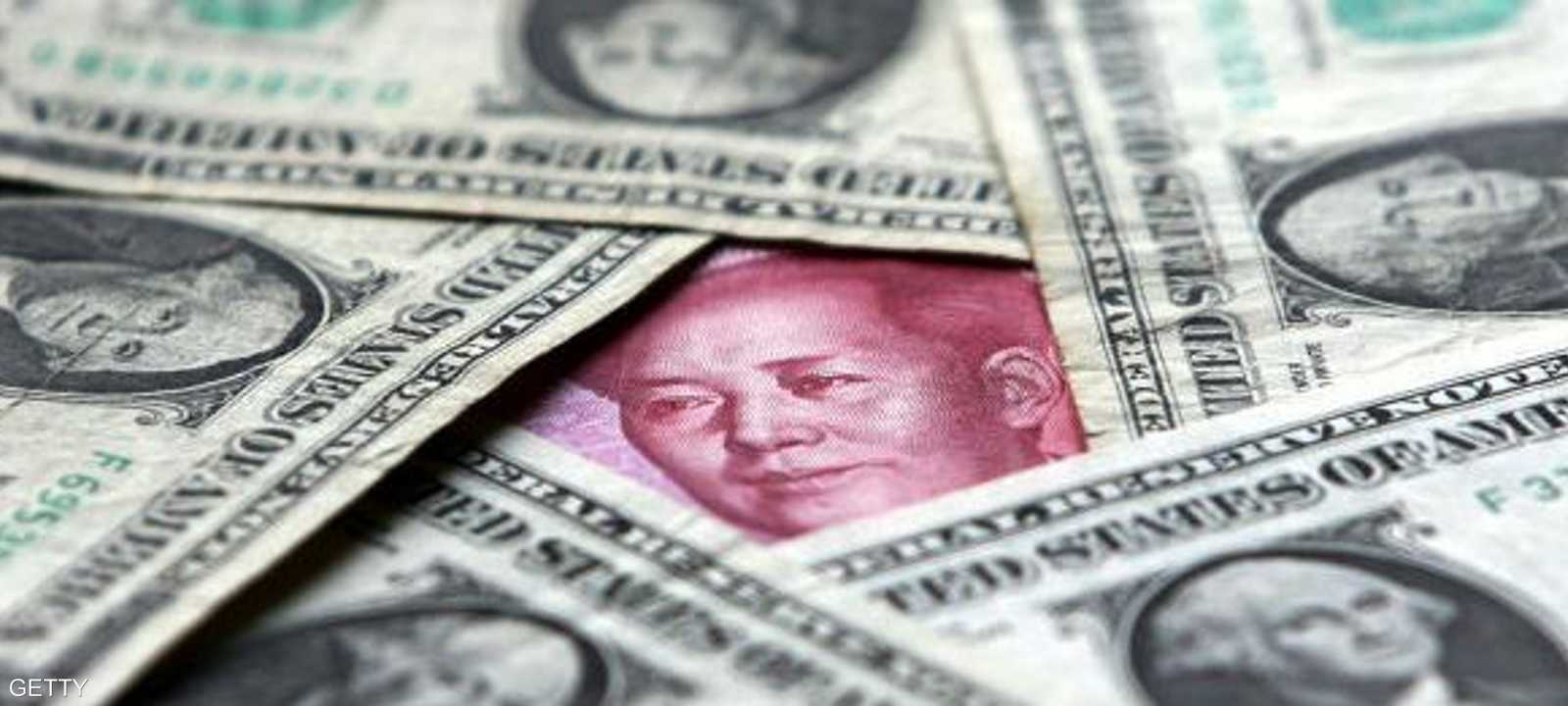
Renminbi and U.S. Dollar Face Values
Despite China’s rise as a major economic power comparable to the economies of the United States and Europe, its own currency, the renminbi, is still unable to compete with those countries’ currencies in the global market.
The renminbi scored 6.4 out of 100 as an internationalizable currency; a Renmin University report measuring the degree of renminbi internationalization published by the South China Morning Post on Sunday said it was based on the renminbi’s use in international trade and foreign exchange reserves.
The internationalization of a currency refers to the widespread use of a currency outside the country in which it was issued. The level of internationalization of a currency depends on the demand for that currency in other countries, based on the volume of business between countries or the perceived value of that currency.
Two researchers, a politician and an economist, explained to the Sky News Arab Economics website the defenses of a stronger dollar and euro against the yuan, noting that they do not include the strength of the economy itself.
Reports in Chinese newspapers provide a diagnosis of the renminbi’s condition relative to its competitors, and also prescribe ways to increase the value of the renminbi abroad:
- The dollar and euro are the most powerful securities, with the Chinese yuan not far behind.
- In the list of currencies used globally, the U.S. dollar and the euro reached 50.5 and 25.16 respectively, while the renminbi scored 6.4, a very low ratio.
- Argentina, Brazil and Russia have started using the renminbi (as part of a national currency exchange trade deal with China), but doubts about the stability of these transactions remain strong.
- The yuan is currently used as part of the Belt and Road Initiative, a transcontinental infrastructure initiative that has more than 60 countries joining but faces hurdles in terms of yuan convertibility and Chinese capital controls.
- China should promote the signing of more bilateral and regional free trade agreements to increase trade opportunities and create favorable conditions for the use of RMB overseas.
- It is necessary to strengthen exchanges with developed countries in low-carbon economic transformation and green financial development, and tap the potential of RMB to serve global climate cooperation.
- China should actively participate in shaping future digital trade and global digital economic governance rules, and give full play to the advantages of the People’s Bank of China in digital transformation and digital currency development.
- State-owned banks and industrial giants need to join forces to prioritize the use of renminbi in foreign trade and projects.
“Secrets of Power”
Economist Youssef Al-Tabei pointed out that other factors besides whether the currency’s country has a strong economy control the secrets that determine the currency’s strength so that it has global influence.
He added that if we compare the yuan to the euro and the dollar, there are a few things to note:
• First, the dollar is important not because of the economic power of the US, but because of its connection to oil, the agreement to sell oil in dollars protects the dollar from any political volatility.
• On the other hand, the Chinese economy during this period was arguably much stronger than the US and European economies, but the RMB did not have as strong a global base as the US dollar.
• The euro also gains strength from the strength of the dollar due to the alliance between the US and Europe, we can say that Washington is the one who positions the euro.
• But for China, even its friends cannot trust the renminbi because of the strength of the dollar.
• This influence is also reflected in the credit system and trading system controlled by the United States and links them to the dollar and sanctions.
• The case of Russia is an example; the ruble is widely used in global circulation, but sanctions following the Ukraine war removed it from the global exchange system, rendering it relatively worthless.
• The same applies to the RMB; limited internationalization capabilities; since it also relies on the US-centric global exchange system, any time sanctions are imposed, it will also weaken.
Global Energy Center: The Renminbi Cannot Replace the U.S. Dollar
local switching system
China expert Mazen Hassan agrees with Tarbe that U.S. controls on the foreign exchange system “hold back the appreciation of the renminbi.”
Likewise, political volatility and the threat of sanctions from opponents in Beijing “make it difficult for the yuan to appreciate”.
As such, Hassan argues that China should “rely on the local exchange system and export it to allies or customers to enhance its power,” noting the importance of Beijing’s recent successful trade deal in which payments were made in yuan.
Is the dollar’s dominance coming to an end?
